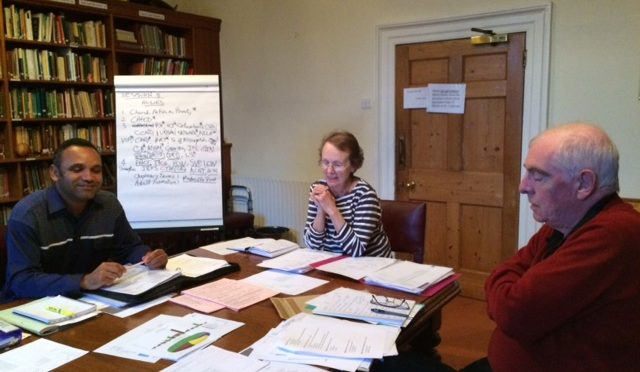
Speaking personally: Becoming involved in J&P work
I first got introduced to the work of Justice and Peace in 2016 after attending a Tablet organised event. Afterwards I met Barbara Kentish (Westminster Justice and Peace Field Worker) who alerted me to NJPN and their Networking Days, my fascination piqued, I wanted to find out more about what Justice and Peace was all about and attended my first networking event in Manchester. I had been looking to change careers since graduating from University eight years before and for the first time I at that Networking meeting I felt I was in good company with like-minded people sharing the same vision, mission and values.
Since then, I’ve had the privilege of not only following the work of Justice and Peace but also being able to contribute to its direction by being an executive member of the National Justice and Peace Network. This has given me the opportunity to take stock of where our contemporary society stands in relation to the issues Justice and Peace seeks to tackle, namely structural inequality, migration, race, climate change and religious dialogue.
There’s no doubt we live in an extremely complex age where we’re seeing the gradual passing of a generation which had living memory of the last world war and the global sentiments following it which lead to the founding of what would become the European Union and a plethora of other regional and international treaties with the aim of bringing nations and states closer together. We’re now entering an age that demands pragmatism, discernment, sobriety and to an extent, importunity in order to first recognise and secondly take advantage of the opportunities for progress which present themselves to us.
Sometimes it’s tempting to become despondent when we consider the conflicts of attrition permeating most parts of our globe today, not least in Syria which has left an estimated 11.5 million people displaced which equates to 53% of the total population. Also, closer to home when we think about the scourge and suffering caused by domestic slavery, food poverty, homelessness compounded by, at times a tardy public policy processes.
In a recent address from the White House on 14th April, Donald Trump said, concerning Bashar al-Assad’s use of chemical weapons in Douma,
“These are not the actions of a man; they are the crimes of a monster instead.”
One could argue that the use of hyperbole is understandable under these circumstances but as representatives of Justice and Peace, this perhaps provides an opportunity for us to polarise our calling and mission. Niall Cooper, the director of Church Action of Poverty, in the Spring 2017 NJPN newsletter reminded us “All people are of intrinsic worth. All people are of equal value in the sight of God. In fact the Bible is even stronger: all people are made in the image and likeness of God.” The Catechism of the Catholic Church on Social Justice puts it this way, “Respect for the human person proceeds by way of respect for the principle that ‘everyone should look upon his neighbour (WITHOUT EXECPTION) as ‘another self’, above all bearing in mind his life and the means necessary for living it with dignity.’ This same duty extends to those who think or act differently from us. The teaching of Christ goes so far as to require the forgiveness of offenses. He extends the commandment of love, which is that of the New Law, to all enemies. Liberation in the spirit of the Gospel is incompatible with hatred of one’s enemy as a person, but not with hatred of the evil that he does as an enemy”
I MYSELF would go one step further still and say everyone is a person for whom Christ died. So, let us not make monsters out of men but men (and women) out of monsters.
With this in mind, I’m enthused to be a part of the ongoing work of NJPN and see the successful future of Justice and Peace and the NJPN lying in our narrative of restorative justice as opposed to corrective justice, a justice which seeks reconcile people, groups and institutions through dialogue.
Paul Gourdon
NJPN Exec member



